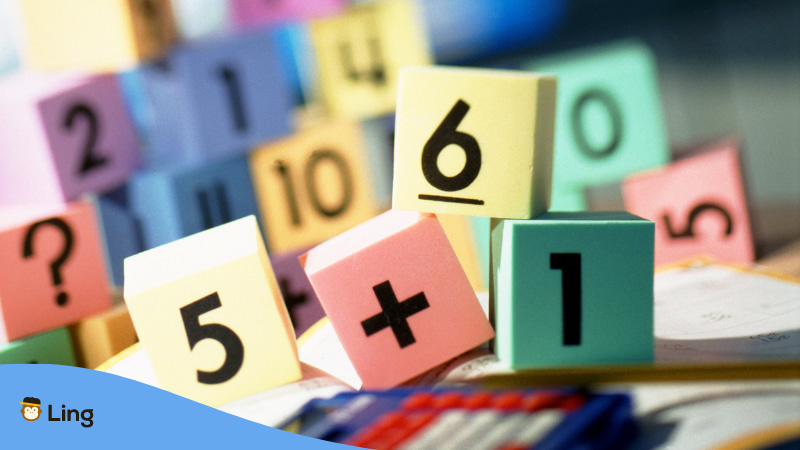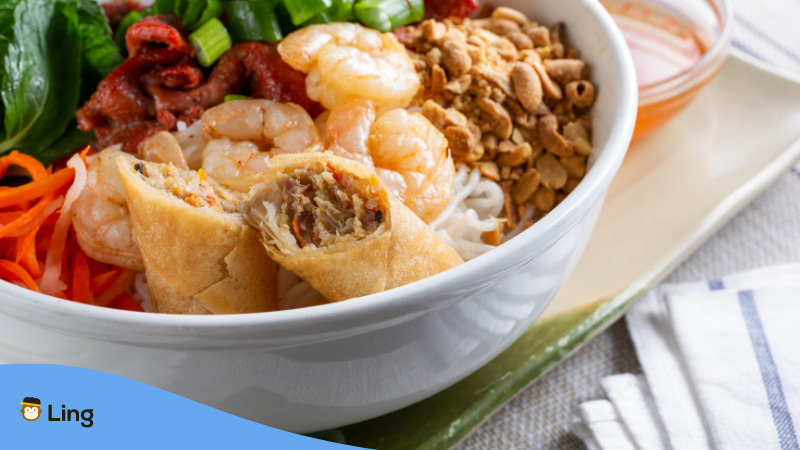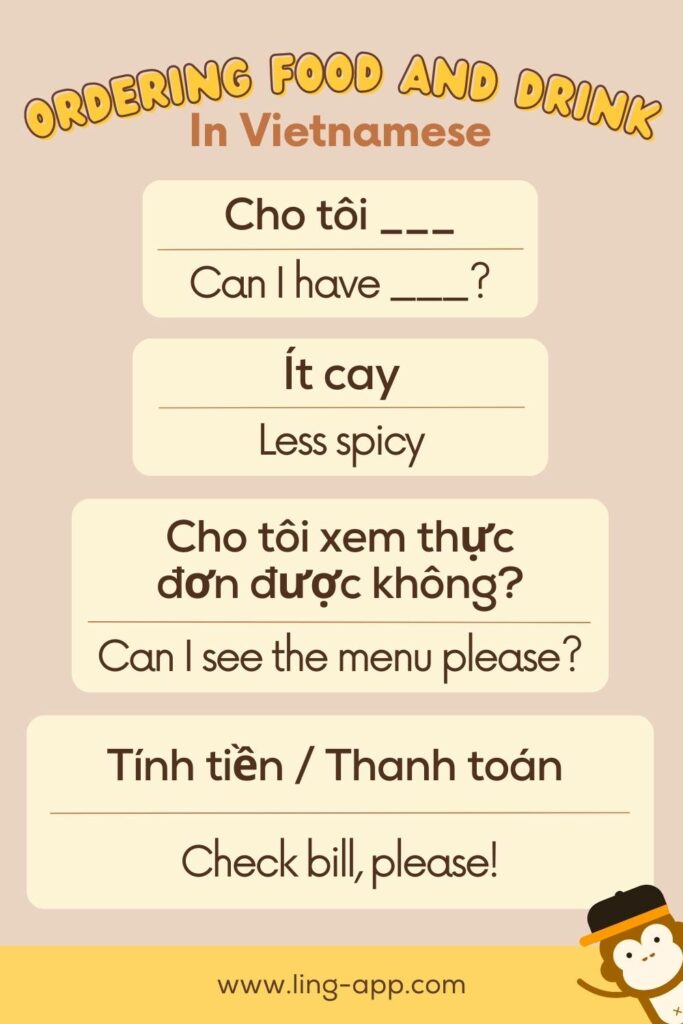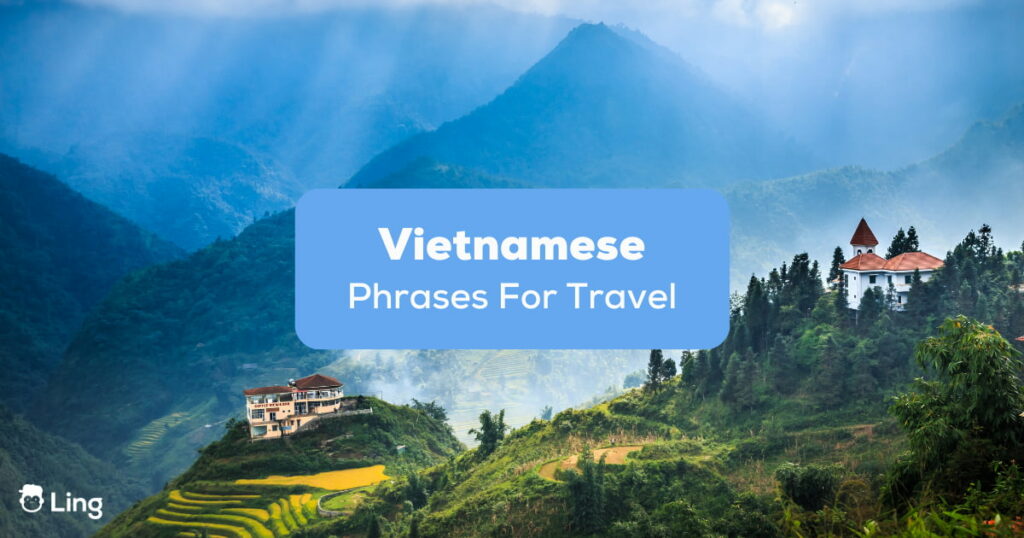When traveling in Vietnam, you can have a fantastic experience with local people if you can communicate with them in their native language, Vietnamese. You do not need to be fluent or at an advanced level in the Vietnamese language in order to talk with them. In fact, knowing the following 80 useful Vietnamese phrases for travel and more can get you started in basic conversation.

Useful Vietnamese Phrases For Greetings
To start a conversation with anyone, the first thing you should do is to say hi, then introduce yourself. Vietnamese phrases for travel and words like ‘thank you,’ ‘goodbye,’ and ‘sorry,’ should be your priority to learn. You can see how easy they are!
Let’s practice:
1. Xin Chào! (Hello, Hi)
‘Xin chào‘ is a basic way to say hi, hello to a new friend in daily conversation. To sound like a native speaker, you can say something like ‘chào anh’, ‘chào chị’, with the word ‘chào’ (to greet) with a pronoun referring to the listener.
2. Tên Tôi Là ___. (My Name Is ___)
To introduce your name, say ‘tên tôi là’ (my name is), then add your name afterward. You can also say ‘tôi là ___’ which is similar to ‘I am ___).
3. Bạn Tên Là Gì? (What Is Your Name?)
To ask someone’s name in Vietnamese, say ‘bạn tên là gì?’ or ‘bạn tên gì?’. Vietnamese people usually use their first name in daily conversation. They also use their nickname sometimes, especially in online chat.
4. Bạn Có Nói Tiếng Anh Không? (Do You Speak English?)
When you don’t understand a Vietnamese person, try to ask if they speak English. This helps you continue the conversation without misunderstandings. You can ask ‘Bạn có nói Tiếng Anh không?’ which means ‘Do you speak English?’.
5. Xin Lỗi! (Sorry!)
When you need to apologize to a Vietnamese person, it is good if you can say it in Vietnamese. ‘Xin lỗi!’ or ‘Tôi xin lỗi!’ are common and short ways to say sorry.
6. Cảm ơn! (Thank You!)
‘Cảm ơn’ and ‘cám ơn’ are both okay to thank someone in Vietnamese. They are pronounced in different tones, just for your information.
7. Bạn Có Khoẻ Không? (How Are You?)
‘Bạn có khoẻ không?’ is used as ‘How are you?’ in English. It literally means ‘Are you good?’ or ‘Are you healthy?’. Vietnamese people usually ask this question when it is the first time they meet, or when they didn’t see each other for a long time. This phrase is not regularly used when you see someone every day.
8. Tôi Không Hiểu (I Don’t Understand)
If you don’t understand something, you can say ‘Tôi không hiểu.’ (I don’t understand), then ask them to explain more or speak English if they can.
9. Làm Ơn, Vui Lòng (Please!)
In Vietnamese, the word ‘làm ơn’ and ‘vui lòng’ are used when you ask someone for a favor. However, this saying is not spoken very often.
10. Tạm Biệt! (Goodbye!)
There are many ways to goodbye in Vietnamese. ‘Tạm biệt!’ is the most common one. You can also say ‘Chào!’ as a goodbye.

Basic Vietnamese Numbers
Before going to any country, it’s vital to know basic words like numbers too. Knowing how to count Vietnamese numbers should be considered because numbers are used a lot in daily life, from ordering food to paying for taxis. Below are the basic numbers you should know when learning Vietnamese:
0 – Không – Zero
1 – Một – One
2 – Hai – Two
3 – Ba – Three
4 – Bốn / Tư – Four
5 -Năm – Five
6 – Sáu – Six
7 – Bảy – Seven
8 – Tám – Eight
9 – Chín – Nine
10 – Mười – Ten
11 – Mười Một – Eleven
12 – Mười Hai – Twelve
20 – Hai Mươi – Twenty
21 – Hai Mươi Mốt – Twenty-One
100 – Một Trăm – A Hundred
1,000 – Một Nghìn / Một Ngàn – A Thousand
1,000,000 – Một Triệu – A Million

What Are Some Common Vietnamese Phrases For Directions?
Going to another country? You may need to ask for directions, address, or give directions to a driver. In Vietnam, there are many Vietnamese phrases for travel you’ll need since you might get lost in the vast sceneries and beautiful landscapes. The following common Vietnamese phrases can help you:
Popular Vietnamese Direction Words
- Trái (Left)
- Phải (Right)
- Bên trái (Left side)
- Bên phải (Right side)
- Bên tay trái (Left-hand side)
- Bên tay phải (Right-hand side)
- Phía trước / Đằng trước (Ahead, In front of)
- Phía sau / Đằng sau (Behind)
- Đối diện (Opposite)
- Kế bên / Bên cạnh (Next to)
- Gần (Near)
- Xa (Far)
- Rẽ trái (Turn left)
- Rẽ phải (Turn right)
- Dừng lại (Stop)
- Đi thẳng (Go straight)
- Quay đầu (U-turn)
- Quay lại (Go back)
- Địa chỉ (Address)
- Xe buýt (Bus)
- Taxi (Taxi)
Asking For Direction, Address
- Ở đâu? (Where?)
- Có xa đây không? (Is it far from here?)
- Đi tới đó bằng cách nào? (How can I get there?)
- Đi lối nào? (Which way should I go?)

Useful Vietnamese Phrases For Travel When Ordering Food And Drink
Vietnamese food is delicious! When you eat at a local restaurant, use the following phrases for ordering food and drink in Vietnam!
- Thực đơn (Menu)
- Cho tôi xem thực đơn được không? (Can I see the menu please?)
- Đồ ăn (Food)
- Đồ uống (Drinks)
- Món tráng miệng (Desserts)
- Cho tôi ___ (Can I have ___?)
- Tôi muốn gọi món. (I would like to order.)
- Tính tiền / Thanh toán (Check bill, please!)
- Em ơi! (Excuse me!)
- Ít cay (Less spicy)
- Tôi muốn gọi thêm đồ. (I would to order more.)
- Ngon lắm! (It’s delicious!)


Vietnamese Sentences For Shopping
Remember to ask for prices before you buy anything. In local markets, you can ask for discounts sometimes. Bargaining the prices when shopping at local markets is famous in Vietnam. However, it would be best if you didn’t do it at the shops where they display the prices on the shelves or at a shopping mall.
- Bao nhiêu? (How much?)
- Tiền (Money)
- Tiền lẻ (Change)
- Giảm giá cho tôi được không? (Can I get a discount?)
- Đắt thế! (So expensive!)
- Cho tôi thử được không? (Can I try it?)
- Tôi sẽ mua cái này. (I’ll buy this one.)
- Không cần túi! (I don’t need a plastic bag.)

Vietnamese Phrases For Emergency
When you travel, even with good preparation, you cannot control everything or foresee all risks. Because of that, you should be able to ask for help from local people when in an emergency. Remember the following helpful Vietnamese phrases for travel to help yourself in these situations:
- Cứu! (Help!)
- Bạn có thể giúp tôi được không? (Can you help me?)
- Túi của tôi bị trộm. (My bag got stolen.)
- Tôi bị mất hộ chiếu. (I lost my passport.)
- Tôi muốn đến đại sứ quán. (I want to go to the embassy.)
- Tôi cần người phiên dịch. (I want a translator.)
- Tôi muốn đến đồn cảnh sát. (I want to go to the police office.)
- Cháy! (Fire!)
- Có người cần giúp đỡ. (Someone needs help.)
Practice What You Learned With The Ling app
I hope you can remember the Vietnamese phrases for travel that you have learned. I suggest that you practice these common phrases as much as you can, especially with native speakers. You can also learn more phrases as well as practice with the Ling app.
The app has dialogue at the end of each lesson and mini-games that help you learn Vietnamese more fun. You can even write, read, listen, and try speaking some of the Vietnamese travel phrases you just memorized!
Don’t start learning later. You can try a few phrases now by downloading the app on the Play Store or App Store. Practice with a native speaker or your friends and family with this gamified app.















